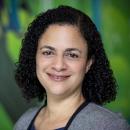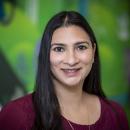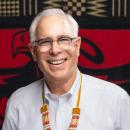Mission Statement
To provide the best possible Pediatric Rheumatology care to children in Washington, Alaska, and Montana as a center of excellence and as a resource for North America, to conduct high quality research, and to educate health care providers about childhood Rheumatic diseases.
Overview
Seattle Children’s Pediatric Rheumatology Fellowship Program is a 3-year, ACGME-accredited training. The fellowship is distinguished by the broad exposure fellows receive in their clinical experience. Therefore, our trainees must be highly competent in the following areas:
- Diagnosis and care of children with complex Rheumatic diseases.
- Managing a Pediatric Rheumatology team and service.
- Conducting successful research, whether basic, translational, epidemiological or clinical.
- Developing successful research proposals for funding and publishing original manuscripts.
- Education of medical students, residents, other fellows, and community general practitioners.
Information and Resources for UW/Seattle Children’s Pediatric Rheumatology Fellowship Applicants (password protected)
The First Year of Fellowship
Outpatient Clinic
Fellows evaluate and follow a variety of new patients while developing a patient panel they will follow during the second and third years. For each patient the fellow has ample time (60 minutes for new patients and 30 minutes for return patients) to evaluate the history, physical exam, laboratory studies and develop an assessment and plan. An additional 30 minutes is scheduled for each patient to discuss the case, re-evaluate the patient, and formulate a plan with the attending physician and the family. Teaching is a priority and feedback immediate. Outpatient rotations are arranged in Dermatology, Ophthalmology, Nephrology, Skeletal Dysplasia, Immunology, Orthopedics, Pain and Adult Rheumatology Clinics. Fellows also participate in our division’s specialty clinics: Renal / rheumatology, Dermatology / rheumatology, Uveitis, CRMO, Myositis, and Inflammatory brain disorders clinics.
Inpatient Service
During the first year, 6-8 months are spent in inpatient service, with the fellow conducting inpatient rounds and consultations, teaching residents, and ensuring all patient care plans are carried out. Telephone consultations are performed for primary care physicians from all over the Northwest and Alaska.
Joint Injections
Fellows perform between 2 and 10 joint injections per month in clinic and in the operating room while the patients are under general anesthesia. Most sedated joint injections are performed with the aid of an ultrasound provider to teach trainees to do ultrasound-guided joint injections.
Education and Research
Two mornings each week are dedicated to education. Fellows attend Rheumatology Grand Rounds, Journal Club, and Fellows Lectures at the University of Washington as well as multi-disciplinary didactic sessions at Seattle Children’s Hospital. Weekly Rheumatology Team Meetings and Morbidity/Mortality conferences are held during which the fellows present patient histories for discussion. Chapter Review lectures occur twice a month. Extra time is spent reading and meeting with potential research mentors. Fellows have an opportunity to attend the annual meeting of the American College of Rheumatology each fall. Fellows also may attend the Childhood Arthritis and Rheumatology Research Alliance Conference (CARRA) meeting each spring.
Senior Fellows – Second and Third Years
Fellows solidify clinical and team leadership skills. Fellows develop research skills through conducting a project in either basic/translational laboratory investigation or clinical investigation. Each fellow develops a hypothesis-driven research project culminating in publication of a manuscript or grant proposal, which is required by the American Board of Pediatrics. Fellows are also required to complete a QI project and write up their experience.
Outpatient Clinic
More time during the first year is devoted to developing clinical skills. In subsequent years, there is a one-half day clinic each month to maintain clinical skills while focusing on research. During the one-half day continuity clinic each week the fellow monitors a patient panel collected during year one. Senior fellows also have an outreach experience with a DEI rotation at Alaska Native Medical Center in Anchorage, AK.
Inpatient Service
Four – six weeks are spent “pretending” each year, in which fellows take major responsibility for patient care; with supervision and teaching of the residents and first year fellow, in consultation with the attending physician.
The Pediatric Rheumatology Fellowship Program participates both in ERAS and in the National Resident Matching Program. For fellowship training beginning July 2026, applicants can download the ERAS Applicant User Guide beginning June 2025. The ERAS application service will open June 4, 2025. At that time, applicants may begin to work on their applications and upload their application materials.
Requirements
For our fellowship, we will require the common application form, a one page personal statement discussing career plans and goals, USMLE Certified Transcript, and three letters of recommendation (including a letter of reference from your residency program director). Please consult the ERAS web site for further details.
Timeline
We will begin to access applications on July 16, 2025. Completed applications will be screened and selected applicants will then be invited to a virtual interview to meet with our faculty and fellows and view a virtual tour of our facilities. Virtual interviews will be held from September to October 2025.
For the NRMP Pediatric Rheumatology match, applicants may register beginning on August 27, 2025. Rank order list submission commences October 1, 2025 and closes November 19, 2025. Match day is December 3, 2025. Please consult the NRMP web site for current information.
Seattle Children's Hospital

Seattle Children's Hospital is both a community hospital for greater Seattle and the pediatric referral center for the Northwest providing excellent pediatric care to meet the medical, surgical and developmental needs of children in the WWAMI region (Washington, Wyoming, Alaska, Montana, and Idaho). Serving as the main clinical training site for pediatric residents, this 423-bed hospital is conveniently located 1.5 miles from the University of Washington campus in a residential neighborhood of Seattle. The staff consists of University faculty and Seattle Children's full-time physicians.
Additional Information
UW Medical Center - Montlake (UWMC)

UWMC is consistently ranked among the nation's best general hospitals. As the only comprehensive clinical, research and learning health system in the five-state WWAMI (Washington, Wyoming, Alaska, Montana, Idaho) region, UW Medicine provides a higher degree of healthcare, ranging from primary and preventive care to the most highly specialized care for the most complex medical conditions.
From first of their kind, life-saving surgical procedures to routine adult, maternal and newborn medicine, we're training the next generation of medical professionals. By using the latest advances in medical technology and patient- and family-centered care, we're building a better future for our community.
Alaska Native Medical Center
The Alaska Native Medical Center (ANMC) offers comprehensive medical services and acute, specialty, primary and behavioral health care to Alaska Native and American Indian people living in Alaska. ANMC is also home to one of America’s most unique health care environments – a place where the highest quality care and cutting-edge technology meets special cultural and traditional services and customer experiences.
The award-winning medical center includes a 182-bed hospital, a full range of medical specialties, primary care services and labs. The ANMC hospital houses Alaska’s first Level II Trauma Center and is also a Level II Pediatric Trauma Center. The hospital also works in close partnership with rural health facilities statewide to support a broad range of health care and related services.
Fellowship Leadership
Current Fellows
 | Emily Schildt, MD, PGY-7 Informatics Fellow, Clinical Pediatric Rheumatology |
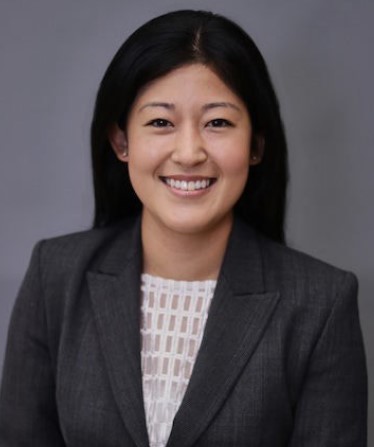 | Rina Ferguson, MD, MBA (2023-2026) |
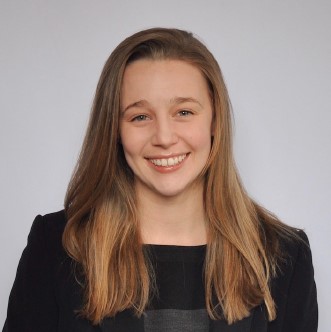 | Hayley Lynch, MD (2023-2026) |
 | Natasha Moussouras, MD, PhD (2024-2027) |
 | Nicholas Hasle, MD, PhD, Accelerated Research Pathway (2024-2028) |
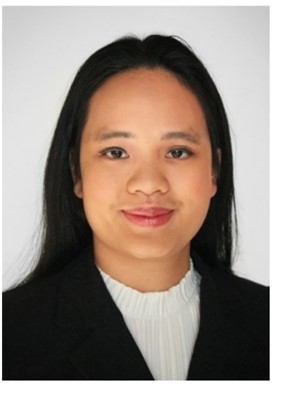 | Irene Chern, MD (2025-2028) |
 | Karl Nevala, DO (2025-2028) |
Alumni
- Roger Hollister, MD (1974)
- Helen Emery, MD (1977)
- Carol Wallace, MD (1979)
- Betsy Mellins, MD (1982)
- Norm Ilowite, MD (1984)
- Richard Vehe, MD (1993)
- Stuart Kahn, MD (1993)
- Chihiro Morishima, MD (1994)
- Lisa Rider, MD (1993)
- Randall Cron, MD, PhD (1997)
- Anne Stevens, MD, PhD (2000)
- Victoria Cartwright, MD (2003)
- Troy Torgerson, MD, PhD (2004)
- Andrew Zeft, MD (2005)
- Jennifer Turner, MD (2007)
- Sarah Ringold, MD, MS (2008)
- Christi Inman, MD, MS (2009)
- Kristen Hayward, MD (2009)
- Elizabeth Shaw, DO (2010)
- Susan Shenoi, MB BS, MS (2011)
- Shaun Jackson, MB, ChB, PhD (2012)
- Nanci Rascoff, MD, MPH (2013)
- Matthew Hollander, MD, MHA (2013)
- Clayton Sontheimer, MD (2014)
- Alexandra Aminoff, MD (2014)
- Katharine Moore, MD (2015)
- Eric Allenspach, MD, PhD (2016)
- Sriharsha Grevich, MD, MAS (2017)
- Albert Chow, MD (2019)
- Sarah K. Baxter, MD, PhD (2020)
- Susan Canny, MD, PhD (2021)
- Erin Balay-Dustrude, MD, MS (2023)
- Julie Campbell, MD, MHA (2023)
- Katelyn Banschbach, MD, MS (2024)
- Aviya L. (Lanis) Levy, MD, MS (2024)
